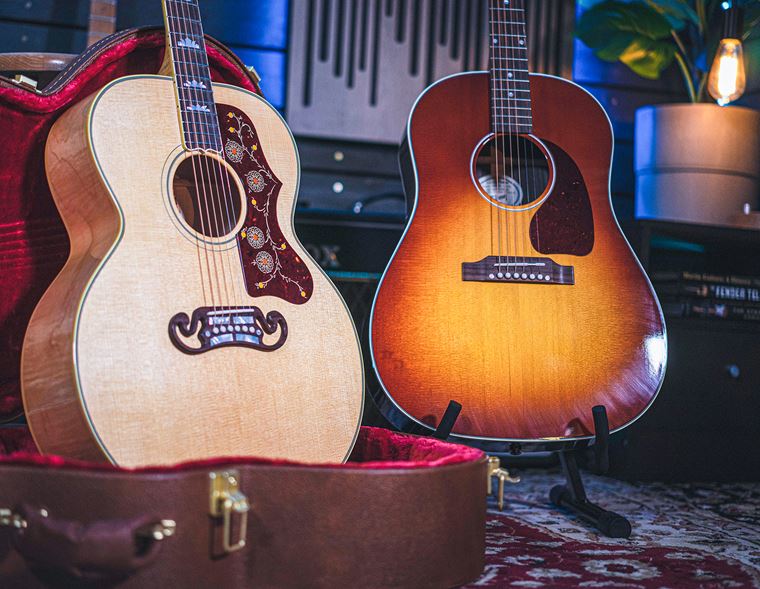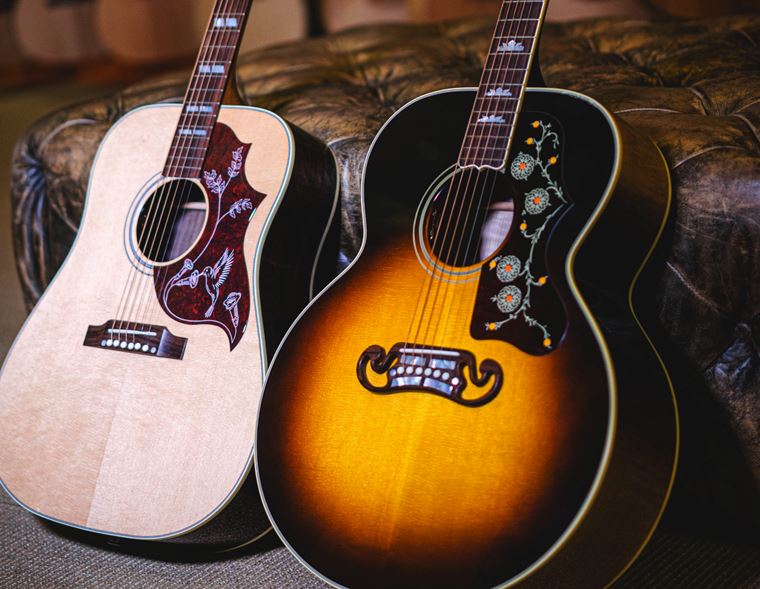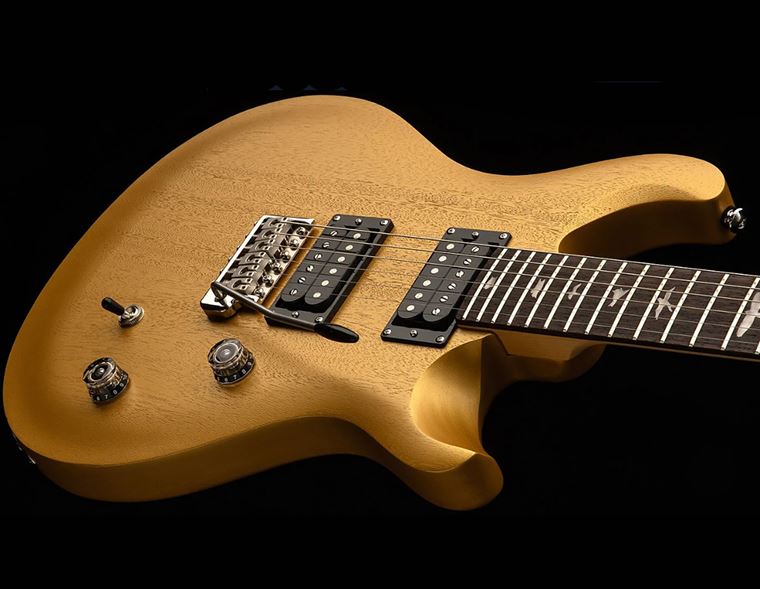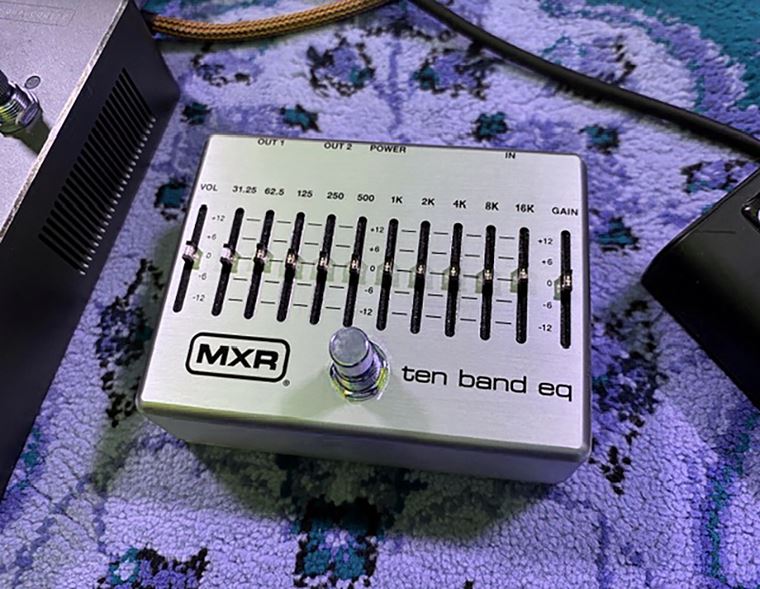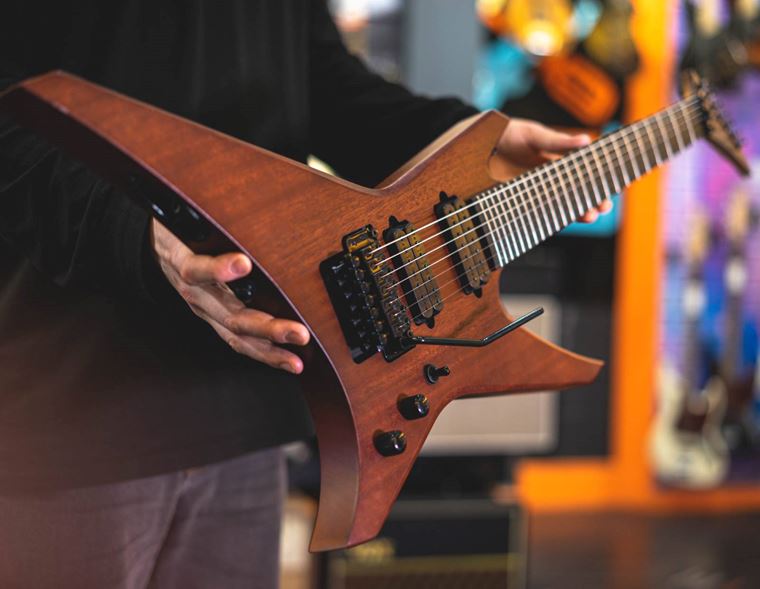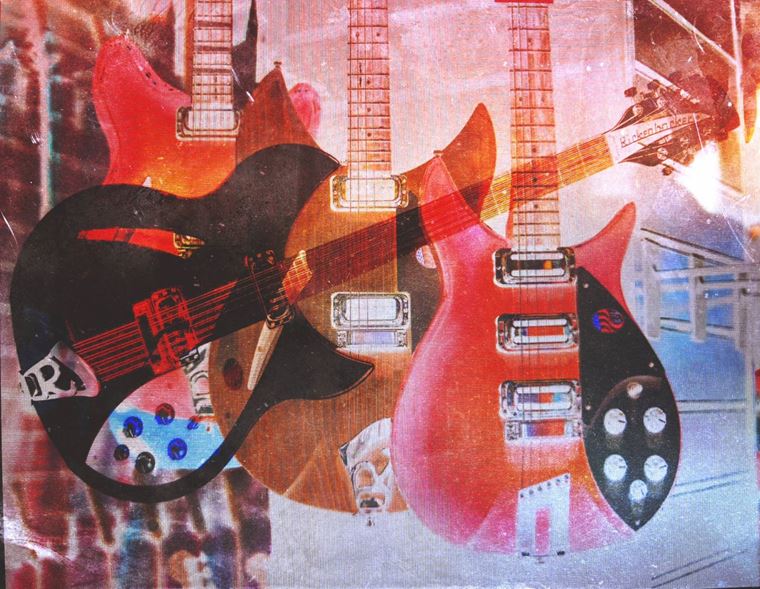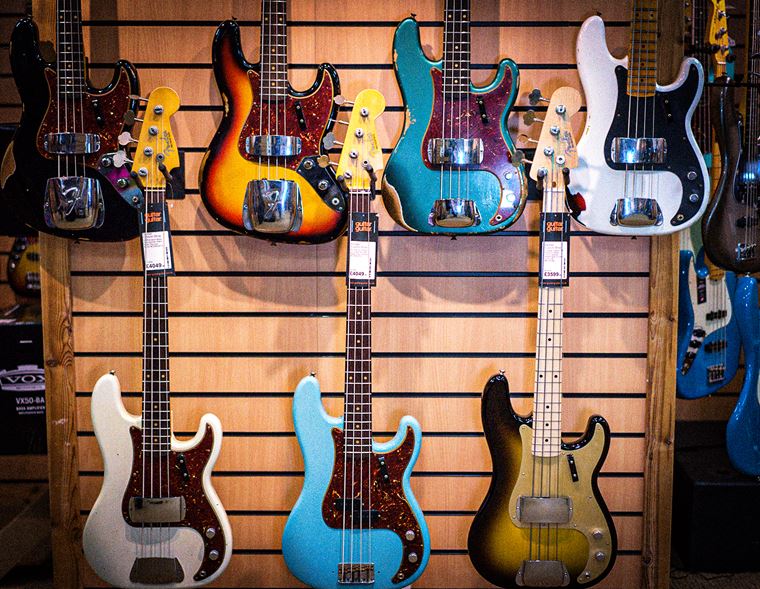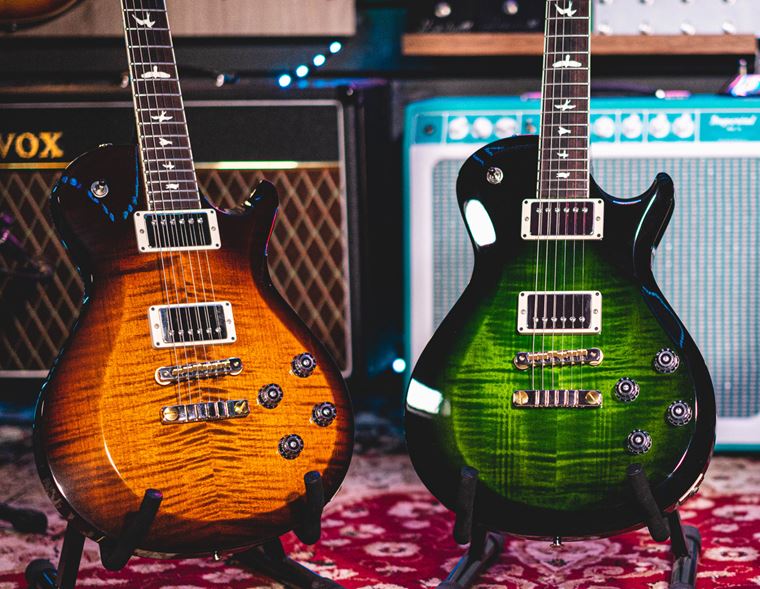The Complete Guide to Resonator Guitars (Updated for July 2025)
What is a resonator guitar?
Have you ever played a resonator? Or has the closest you’ve been to one simply a loving gaze towards the Dire Straits Brothers in Arms front cover? If the latter sounds like a familiar occurence, then let me use today’s blog to introduce you to a guitar concept like no other: the resonator!
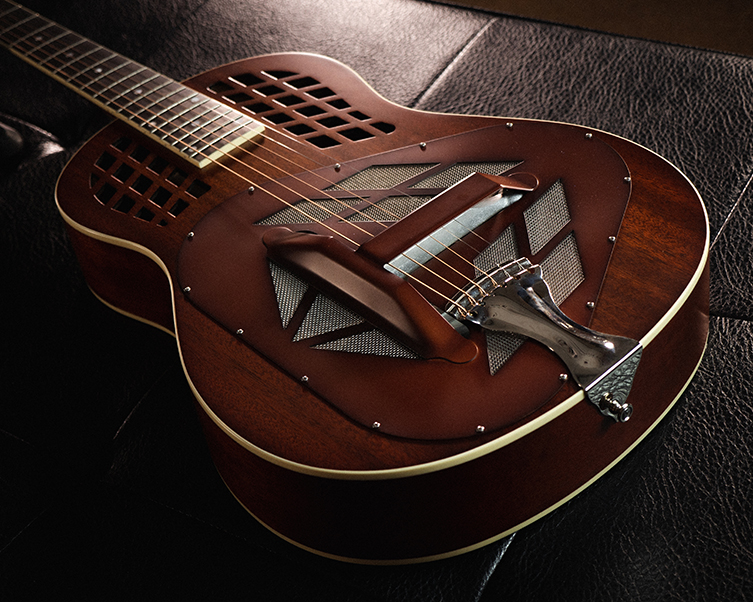
Resonator guitars are instruments that we, as guitarists, are all at least somewhat familiar with, though many of us have never played one. People understand that they look like fancy metal-bodied acoustic guitars, but that there’s something unusual and special about them. For many, this is as far as they get, so today we’ll go a little further into the world of the resonator. We’ll look at what they are, how they work, their history, and some of the more notable users. We’ll highlight some of the features and differences of certain models, and even recommend a few to you later on!
Contents
How Does a Resonator Guitar Work?
How to Choose a Resonator Guitar
Resonator Guitars
- Fundamentally different from acoustic guitars
- Authentic folk, blues and bluegrass sounds
- The sound is made using aluminium coines within the body
So, once again: what is a resonator guitar? Well, generally speaking, it’s a type of acoustic guitar that uses specially ‘spun’ metal cones placed inside the body to pick up the sound of the string and amplify it. This is instead of the typical bracing and ‘soundbox’ (carefully shaped empty space) of a standard acoustic guitar such as a dreadnought or jumbo. It’s a significant difference, and it’s what gives resonators their highly distinctive bite and sound. The string vibration goes through the bridge and into one or more of these spun metal resonator cones, creating the sound as it does so. The resulting tone is generally on the loud side when compared to an acoustic guitar, and therein explains the reason for their existence! In a pre-electric guitar world, resonators answered a need for a louder guitar in order to compete with ever-louder bands and groups.
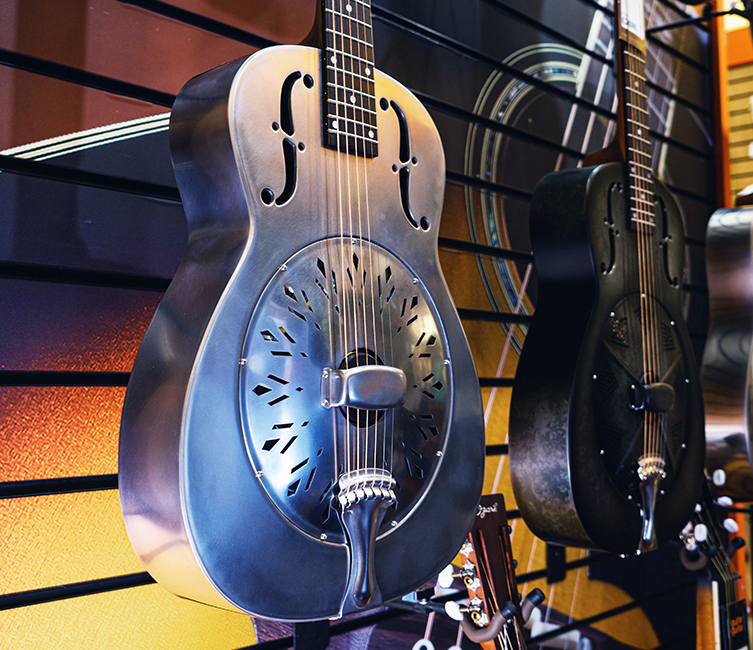
How Does a Resonator Guitar Work?
- There are different types of resonator
- Resonators have different amount of cones inside them
Some resonators are made with wooden bodies and some have metal bodies, but all of them use those metal cones to make their sound. The number of cones inside the body is generally either one or three, with the greater number adding to the overall volume as well as (some say) a more complex sound. This is where the term tricone comes into play, and you’ll also hear about spider resonators, which are so-called due to the method of attaching the cone to the body via a set of metal spokes. It looks more like a wheel to us than a spider, but that’s tradition for you!
Talking of tradition, resonator guitars were invented in either 1927 or 1932 (I’ve found conflicting reports) by National Guitars, who still make them today. They are mainly known for tricone styles, whereas brands such as Dobro are famous for single cone resonators (also known as biscuit resonators, for which we have no real explanation) and spider models.
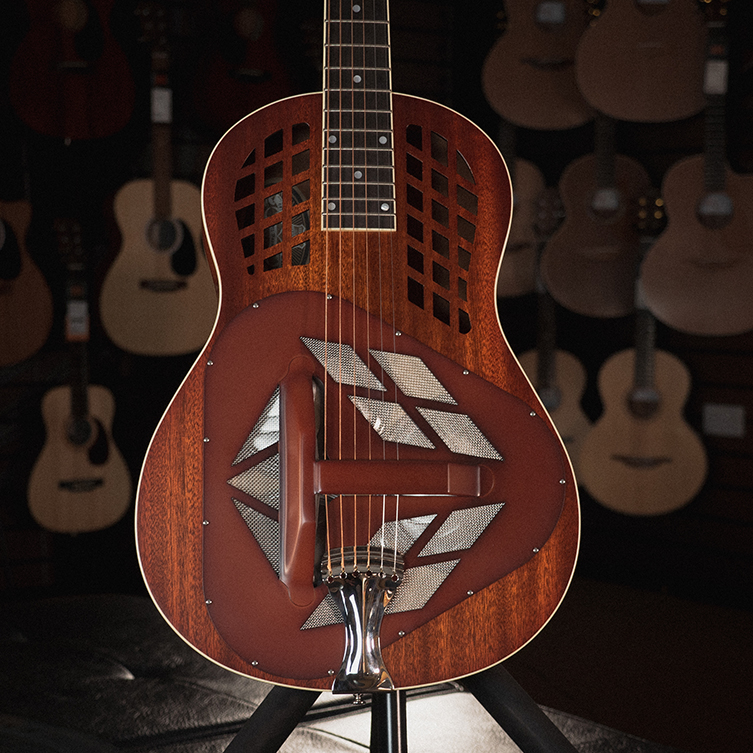
Resonators can have two different types of necks, and these differentials are represented in the terms we use to refer to the instruments themselves. Round neck resonators have normal guitar necks, basically, and square neck resonators have much larger necks that are entirely squared off at the back. These are intended for laying across the lap and playing flat, in a method akin to a lap steel (ahh, terminology!), whereas round neck resonators can be used either like that or played ‘normally’ like a guitar.
Playing a Resonator Guitar
- Slides for the win
- Across the lap or 'normal': you decide
- Open tunings add authenticity
- Compromise sometimes leads to the best results
So, we’ve just mentioned the main decision you’ll face when playing a resonator: lay it on your lap or play it like a guitar? Round neck models can do either, and you can use a device called a nut extender to raise the action for slide, but it does put extra stress on the neck to be changed back and forth often, so do keep that in mind. Do also keep in mind that most players simply stick with a pretty high action for the benefit of slide playing, making do with a slight compromise in feel when fretting notes, in order to make their resonator more versatile. Never underestimate the hassle factor!
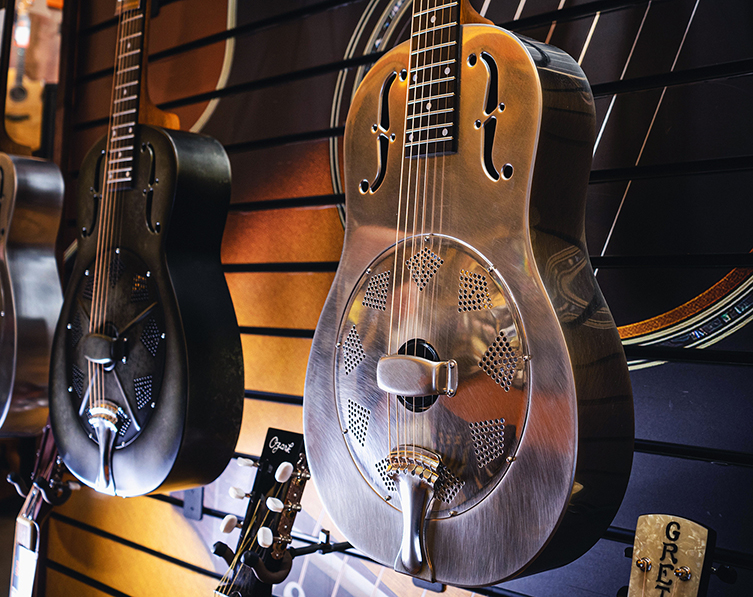
So, round neck resonators can therefore be fretted and chorded, just like a normal guitar. Traditionally, round neck resonators are tuned to either standard tuning, open G or open D, because most players still use them primarily to play slide with. Blues players, for example, tend to go for a round neck model, since they might need to play rhythms and riffs as well as slide.
Square neck resonators, on the other hand, are used explicitly for slide playing to the extent that they often don’t even have frets! The strong necks and up-pointing tuners lead many guitarists to believe that these resonators intonate better and stand up better to more radical tunings. A typical square neck tuning is G-B-D-G-B-D, but there are no real rules. These resonators are laid flat on the player’s lap, and played with either a slide or tone bar.
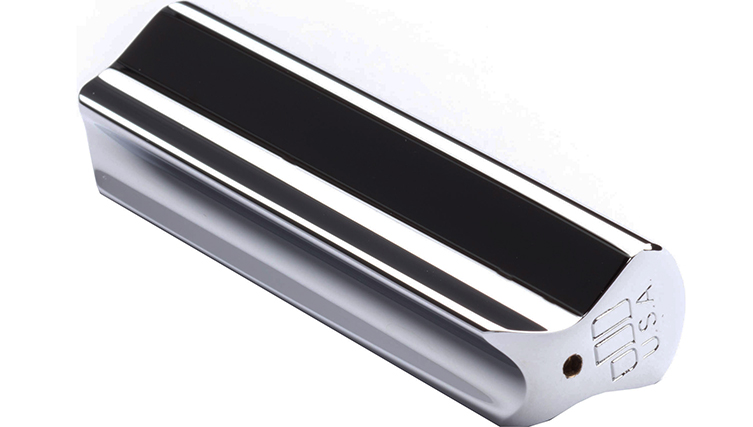
Traditionally, square neck resonators are played by bluegrass and country players but again, it’s not like there’s a decree ruling it! It’s fun to try both and see how each ‘resonates’ (sorry) with you as a player.
Famous Resonator Players
- Top resonator artists from the past and present
- Established legends and up-and-coming talents
As mentioned, resonators are most often seen in the hands of bluegrass, blues and country players. Without claiming any overt authority, here are some examples of world famous resonator players from a number of these genres over the years…
Mike Aldridge (1938-2012)
The late Mike Alrdrige is considered a master of resonator playing. More of a Dobro player, his band The Seldom Scene are legends in certain circles. A huge influence on other bluegrass and country artists, Aldridge actually didn’t begin playing full-time until he was in his forties. Mike preferred a square neck Dobro, but frequently played it standing up, proving that it’s really all about what you want to do, not what you’re expected to do!
Cindy Cashdollar
Five-time Grammy winner Cindy Cashdollar (real name: Cindy Cashdollar) is a superb steel and slide player from upstate New York. Music was in the family blood for Cindy, and she has continued the tradition via her own record label, Silver Shot Records. Cindy mainly plays a steel bodied National Tricone model, and has played with every legend in the book, from Dolly Parton to members of The Band.
Jerry Douglas
Jerry Douglas is another resophonic player who has amassed a garageful of Grammy records (14 at last count) and is well known both for his day job as part of Allison Krauss’ band, Union Station, as well as a whole other career as songwriter, session man and record producer. He’s been on over 1500 records and has been described as being ‘to the resonator guitar what Jimi Hendrix was to the electric guitar’. Now, that was on his own website’s bio, but we’ll still go with that!
Eric Sardinas
I’m always going to recommend a guitarist who sets his guitars on fire onstage. What’s not to love? Eric Sardinas has been putting raunchy resonator-powered blues rock on the global map for decades, and actually crosses a few stylistic boundaries and audiences (we supported Steve Vai on tour, for example!).
Sardinas most often uses his own signature model Washburn resonator, slides with his Dunlop signature ‘Preachin’ Pipe’ slide, and plugs into a wah and Univibe for extra rockstar pizzaz. Love it!
Troy Redfern
British rocker Troy Redfern has been tearing it up these last few years, armed with a vintage National resonator and a storming live set. Redfern - who is actually a committed Zappa fan - summons the Mississippi Delta with the ferocious zeal of a true believer, and his high-octane blues rock riffing and slide screeching puts the resonator into a pretty wild and exciting context. Well worth checking out.
How to Choose a Resonator Guitar
- Look at these top models to get an idea of what's out there
- Go to your local guitarguitar and get playing!
So, you love the look and sound of resonator guitars and have decided to go for one of your own! Well done, it’s a fantastic world to dive into, on instruments that are undeniably beautiful.
However, you are not quite sure which model to go for so the question remains: how to choose a resonator guitar?! We can help here by looking at a few models that we currently stock, taking in some of the inherent differences of each model. What we can’t do is replace the experience of trying them out for yourself, so we recommend reading this blog and then heading into your nearest guitarguitar store and experiencing these instruments first hand.
National NRP 14 Fret Steel
Handmade in Los Angeles since the 1930s, National guitars are the defining resonator brand. This 14 fret round neck model is a tricone resonator, so you’ll get the full, rich resophonic sound and experience. Play it like a guitar or lay it flat: the National NRP 14 fret Steel model lets you do it all with a fully authentic look and sound. The resonance is amazing!
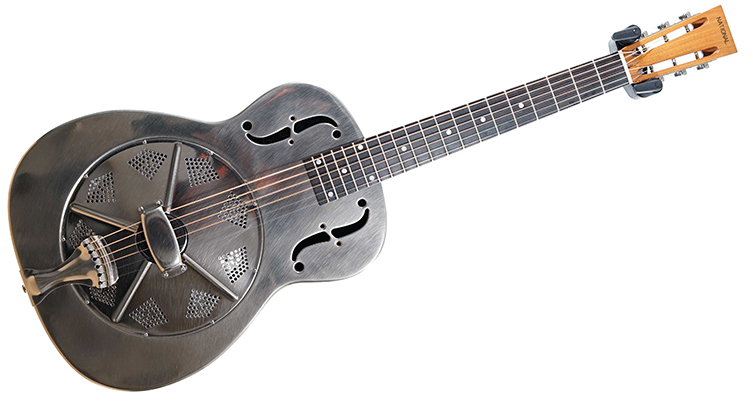
The body is made with steel, then it’s nicked-plated and hand rubbed to get that beautiful, slightly distressed rubbed steel look. National are the inventors of the resonator guitar, but they are also the greatest, most unsurpassed practitioners of it, so it’s well worth going straight to the source for this type of instrument. There’s nothing quite like a steel bodied National Tricone resonator, and every guitar player should experience one at some point.
Ozark Steel Body Resonator 3515N
Ozark are an excellent mid-priced choice for those who want a 'proper' metal bodied resonator at a good price. The Ozark 3515N is sure to impress, with its single Biscuit cone style and traditional chrome plated fittings. To me, this is the classic definition of a resonator guitar, from the looks to the sound, and it comes in at a very attractive price, too!
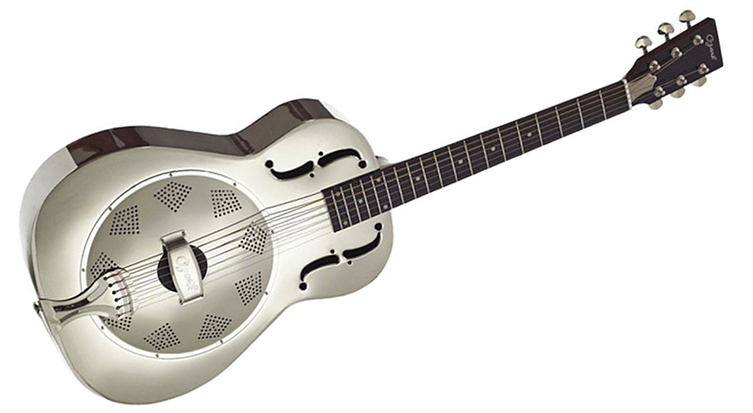
Epiphone Dobro Hound Dog Deluxe
If you want to try out the resonator life but are not sufficiently well-heeled to afford a National, this next choice may just do the trick. Dobro were historically National’s big competitor, and with Gibson now owning the brand, it’s possible to get some very affordable Dobro branded guitars via Epiphone, Gibson’s imported sub-brand.
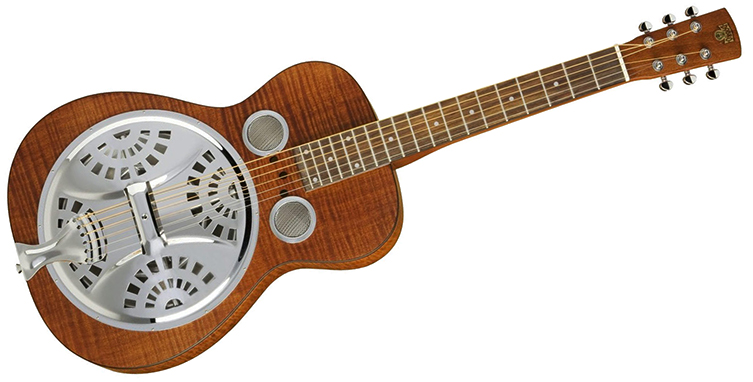
The Epiphone Dobro Hound Dog Deluxe is a round shoulder, single cone resonator with an attractive veneer of flamed maple on the top to accompany the steel. It’s a comfortable and playable instrument for sure, and the fitted Fishman resonator pickup ensures that you’ll sound authentic on stage, too.
A Wonderful Alternative
Resonator guitars are a wonderful alternative to standard guitars. They open up a whole new sound and playing style for you, but allow you to fully transfer your existing skills and knowledge, so there’s none of those difficult ‘new instrument’ hurdles in place. That said, becoming a master on one takes a lot of dedication, so if you’re looking for a new focus for your playing, resonators may provide exactly that.
They are a new colour for your palette if you record and produce music, and they have their own attitude and sensibility that’s just fun to get to grips with. A resonator sounds like no other instrument, and despite its closeness to a guitar in so many ways, you may find that you play one with a completely different headspace, which can be very conducive to the creative process, not to mention enjoyment!
We currently have a fantastic selection of USA-made National resonators available, and we stock a full appointment of other brands too, to fit all budgets.
Now all you need to do is figure out which finger to put the slide on…
Click to Browse our Selection of Resonator Guitars


